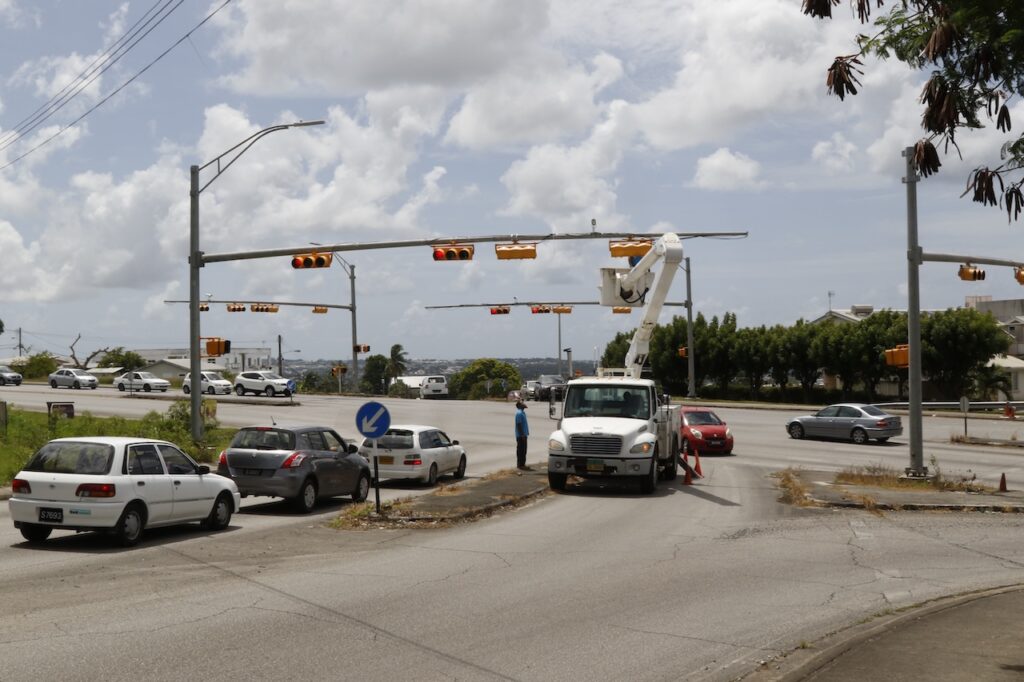Consumer advocates have launched a challenge against the Fair Trading Commission’s (FTC) decision to greenlight Barbados Light & Power Company Limited’s (BLPC) recovery of rental and operating costs for temporary generators from customers.
The intervenor team of utility attorney Tricia Watson and David Simpson on Tuesday filed what is known as a Review Request with the FTC, challenging the commission’s October 29 decision which Watson described as “very wrong” and “very bad from a rate regulation perspective”.
The ruling allows BLPC to pass on the rental and operation costs of generator units to consumers, through the Fuel Clause Adjustment (FCA). That cost is estimated at $856 046 and the FTC said there would be a “modest increase in monthly bills” as that sum is passed on to customers.
“Because I understand how [consumers] will be affected during this festive season and in 2025, particularly in January which is always a difficult month for householders, I have also asked the FTC to suspend its decision while the review is heard,” she revealed.
The FTC has given BLPC the go-ahead to rent the 11-megawatt Aggreko generators for at least 12 months – with the possibility of a further 12 months if market conditions warrant it – as one of the company’s gas turbines is currently out of commission.
Watson said in a statement that “although this is a very bad decision, the applicable law significantly limits the grounds on which a party can appeal or seek a review”.
“For example,” the utility attorney added, “the commission chose to ‘dispose of the matter by written hearing’, effectively ensuring that the rate case would be hidden away from public scrutiny that citizens have become accustomed to when we are being asked to pay increased electricity rates.”
She contended that the utility regulator’s decision to not have a public hearing deprived the intervenors of the opportunity to cross-examine the BLPC’s witnesses on its evidence.
“I have appealed this decision because it is decidedly in the public interest that such a bad and technically wrong decision, one that will set a dangerous precedent that will work against the consumers and indeed the country’s interests, must not be allowed to stand.”
She identified the use of the FCA to recover costs as one ground on which her team is challenging the ruling.
The intervenor explained that the FCA is a “pass-through rider” or automatic adjustment clause, which is used primarily for administrative efficiency to minimise administrative costs that would be ultimately passed on to ratepayers.
The Watson/Simpson team acknowledged that in the case of the FCA, the price of fuel is highly volatile and that it would be unfair for the utility to bear the costs of erratic fuel price increases. The intervenors also admitted that Light and Power has no control over these fluctuations, and it would therefore not be practicable for a full, public rate case to adjust electricity rates in response to every increase in world oil prices.
Intervenor Tricia Watson.
Watson said it is universally understood and accepted that cost recovery may be permitted via a rider, only if the costs for which recovery is being sought are volatile, unpredictable, and outside of the control of the utility and its manageable costs.
She argued that these requirements are “very strict” to protect the consumer because rate increases that are passed through to the ratepayers via a rider do not undergo the normal scrutiny occasioned by a rate review.
The utility consumer activist pointed out that in recent decisions, the FTC has ruled in this manner.
“Now, suddenly, without explanation, the commission tosses these principles out of the window and grants the Light & Power’s wishes to get all of the costs for the units, not just the fuel used as a pass-through, to ratepayers through the Fuel Clause Adjustment. This is one ground for review,” Watson said.
Another ground submitted by the intervenor team relates to a “breach of legal principles”.
They claimed that the FTC breached several fundamental legal principles, including procedural fairness and principles of natural justice.
To support this, she pointed out that in the written hearing, intervenors requested “some of the most basic and automatic” data required to evaluate a rate increase request, such as annual regulatory reports, annual financial statements, and public documents, “which the Light & Power refused to provide”.
Watson contended that the FTC, which itself had the documents, also refused to share them with intervenors and would not order the power company to produce the information for intervenors.
Veteran utility intervenor Ricky Went told Barbados TODAY that all intervenors will be involved in the Watson/Simpson appeal.
emmanueljoseph@barbadostoday.bb
The post Watson-Simpson team wants FTC to suspend decision until review done appeared first on Barbados Today.


